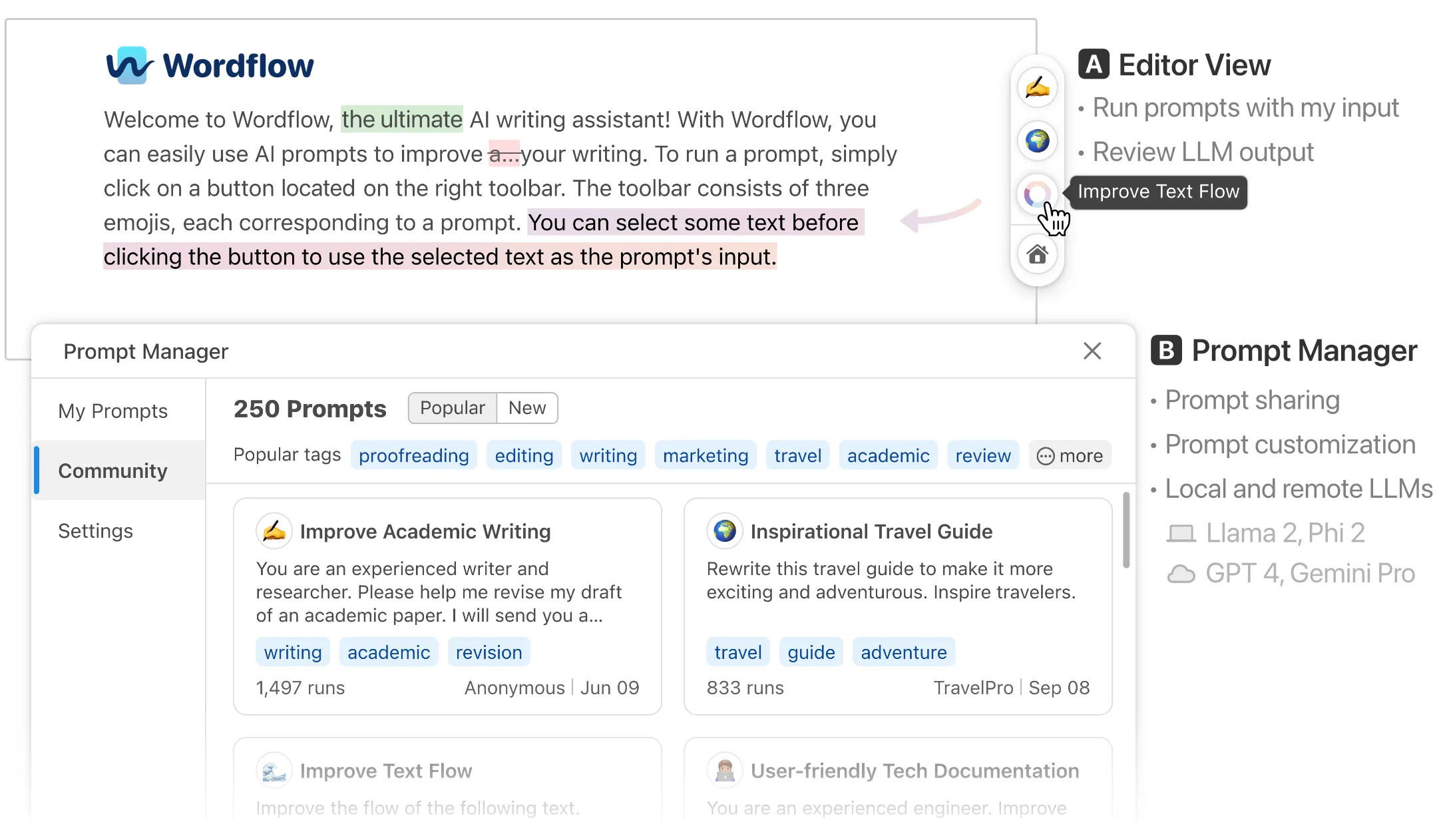Wordflow: Social Prompt Engineering for Large Language Models

Demo Video
Abstract
Large language models (LLMs) require well-crafted prompts for effective use. Prompt engineering, the process of designing prompts, is challenging, particularly for non-experts who are less familiar with AI technologies. While researchers have proposed techniques and tools to assist LLM users in prompt design, these works primarily target AI application developers rather than non-experts. To address this research gap, we propose social prompt engineering, a novel paradigm that leverages social computing techniques to facilitate collaborative prompt design. To investigate social prompt engineering, we introduce Wordflow, an open-source and social text editor that enables everyday users to easily create, run, share, and discover LLM prompts. Additionally, by leveraging modern web technologies, Wordflow allows users to run LLMs locally and privately in their browsers. Two usage scenarios highlight how social prompt engineering and our tool can enhance laypeople's interaction with LLMs. Wordflow is publicly accessible at https://poloclub.github.io/wordflow.
Citation
Wordflow: Social Prompt Engineering for Large Language Models
@article{wangWordflowSocialPrompt2024,
title = {Wordflow: {{Social Prompt Engineering}} for {{Large Language Models}}},
shorttitle = {Wordflow},
author = {Wang, Zijie J. and Chakravarthy, Aishwarya and Munechika, David and Chau, Duen Horng},
year = {2024},
url = {http://arxiv.org/abs/2401.14447},
urldate = {2024-01-29},
archiveprefix = {arxiv},
journal = {arXiv 2401.14447}
}


 Chau.webp)